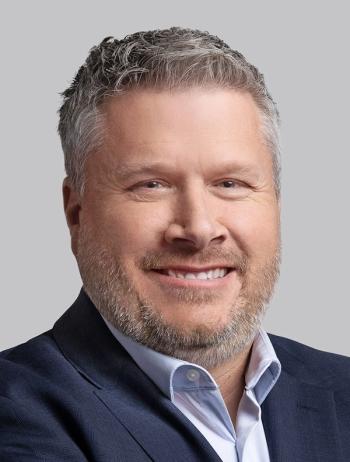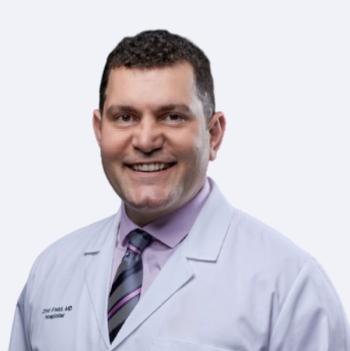
Tips for physicians to improve their lives and careers
Alexi Nazem, MD, MBA is chief executive officer and cofounder of Nomad Health, a healthcare technology startup designed to connect freelance physicians with locum tenens work. We spoke with Nazem about physicians seeking new ways to work in the medical practice
Alexi Nazem, MD, MBA is chief executive officer and cofounder of Nomad Health, a healthcare technology startup designed to connect freelance physicians with locum tenens work. We spoke with Nazem about physicians seeking new ways to work in the medical practice. Below, you can read our podcast transcript.
So, yes, there is a huge and growing physician shortage. There’s a similarly large shortage in the nursing world and it’s largely driven by demographics as the baby-boom population ages they’re going to demand more and more health care services. And their increasing rate of demand for services is going too far outpace the increasing supply of clinicians. So I think that there is a multi-part solution here and Nomad is one of the key elements.
MORE FROM ALEXI NAZEM:
So the first thing that needs to be done to improve or to address the clinician shortage is actually to improve the workforce liquidity. In other words, to help with allocating the workforce resources that we already have. There is a lot of latent capacity on the sidelines. There is also a lot of inefficiency existing in the system in terms of getting people to the right job at the right time. And so a system like Nomad is going to (a) improve the efficiency of resource allocation, workforce resource allocation.
So make it easier, as I’ve said multiple times now, getting doctors to the patient’s bedside. But also we can mobilize a lot of the latent capacity that’s on the sidelines for freelance work by making it easier and more attractive to participate in that market. So I think that we can address a substantial percentage of the clinician shortage problem in that manner. But it’s not going to solve one hundred percent of the problem. I think there’s two other layers to the solution.
The second layer is actually workforce multiplication. So that is, in other words, enabling doctors and nurses in other to do more and see more patients, deliver more care. And so the solution there are things like telemedicine where a single doctor can actually have an impact on many, many more patients and multiplies their impact.
Also, new care models like group visits and sort of like extension work where you know you’re getting a doctor out into the community, community health workers out into the community, that kind of thing. So workforce multiplication. And then the final layer, I think, is what I call clinicianless care. I think we’re at the point with our technology that we are able to actually diagnose and treat people without the intervention of an actual human clinician.
I think it’s going to take years, decades even to really deploy that but ultimately that is going to be a huge part of the solution as well. So I think that those three layers, so workforce allocation, workforce multiplication and clinicianless care.
…
There’s going to be a lot of different solutions to how to treat patients and telemedicine is one that is growing and telemedicine requires doctors and we are there to provide those doctors. The nature of that care and how telemedicine companies actually bridge that gap as you say it’s really their charge to figure that out. So we’re there to support, to supply and to make it happen but in reality, Nomad is not the one helping bridge that gap.
CHANGEMAKERS IN MEDICINE:
Now that being said, I’ll take off my Nomad hat and I’ll wear my doctor hat for a moment. Telemedicine has existed as long as there has been a telephone. I mean you have gotten a call from your doctor and they’ve prescribed you medicine and they have called it into the pharmacy. They have listened to your complaints and figures out what’s going on.
This is not new medicine. This is just a more effective way of doing what’s already been happening for a long, long, long time. And so in-person, physical visits are not necessarily the best use of anybody’s time or resources. And frankly this idea that patients have to come into the doctor’s office is sort of a flipping of the appropriate power structure in health care. Everything about health care should revolve around the patient but enforcing that patient to come into the doctor’s office is sort of usurping that power, that role of power from the patient.
So the idea that a patient could easily, conveniently access care from their home immediately I think is both great from the perspective of patient-centered care but also it actually is better from a resource allocation standpoint. No question there is a substantial amount of medicine that requires in-person visitation but there is definitely some percentage of medicine that can be rendered virtually and to the extent that that’s possible that’s a great thing for all parties involved.
So I am a huge proponent of this idea of telemedicine and I think it will continue to grow because it’s actually a good thing.
Newsletter
Stay informed and empowered with Medical Economics enewsletter, delivering expert insights, financial strategies, practice management tips and technology trends — tailored for today’s physicians.






